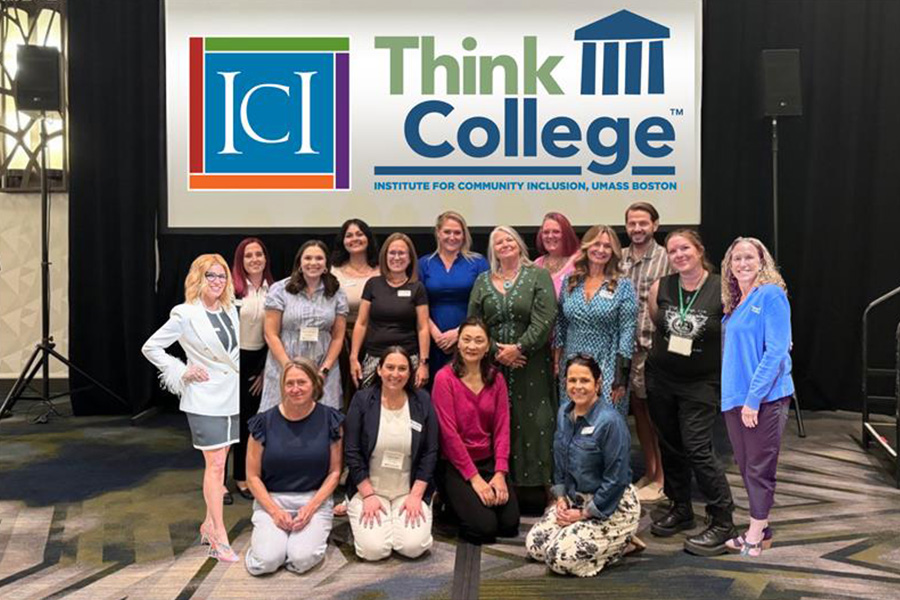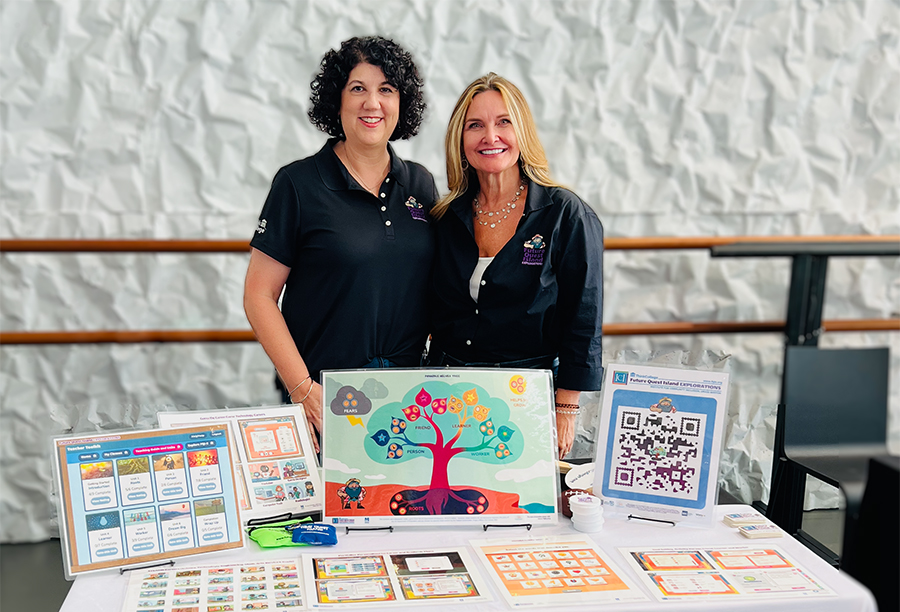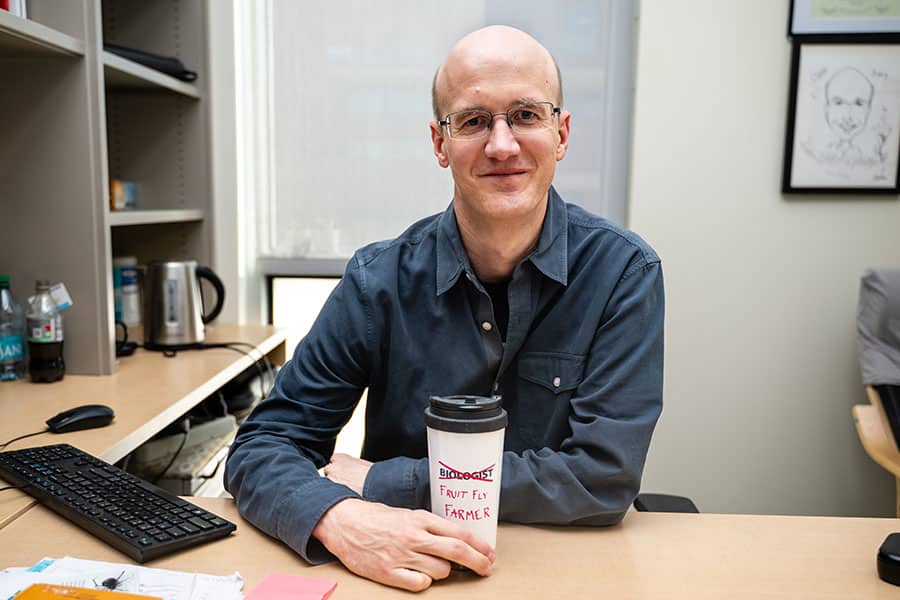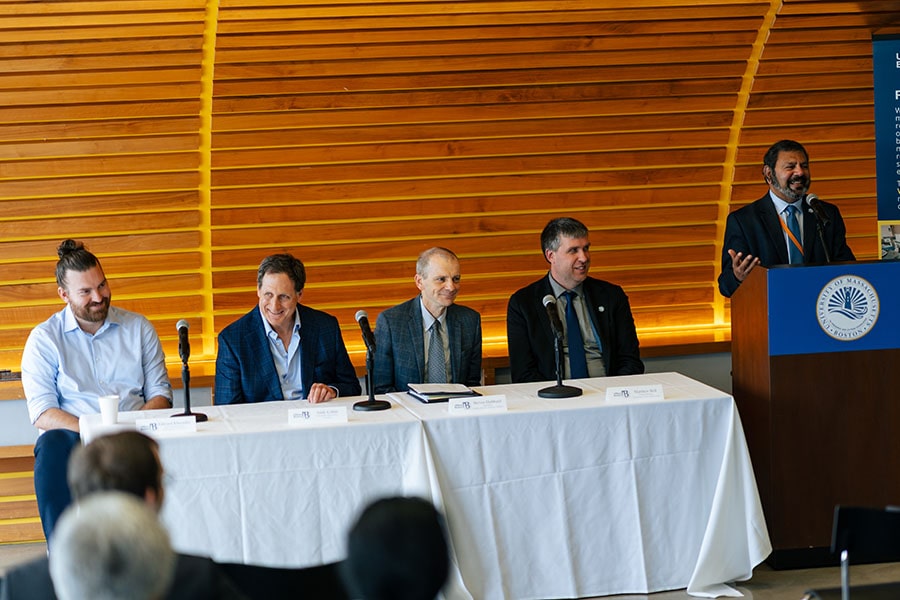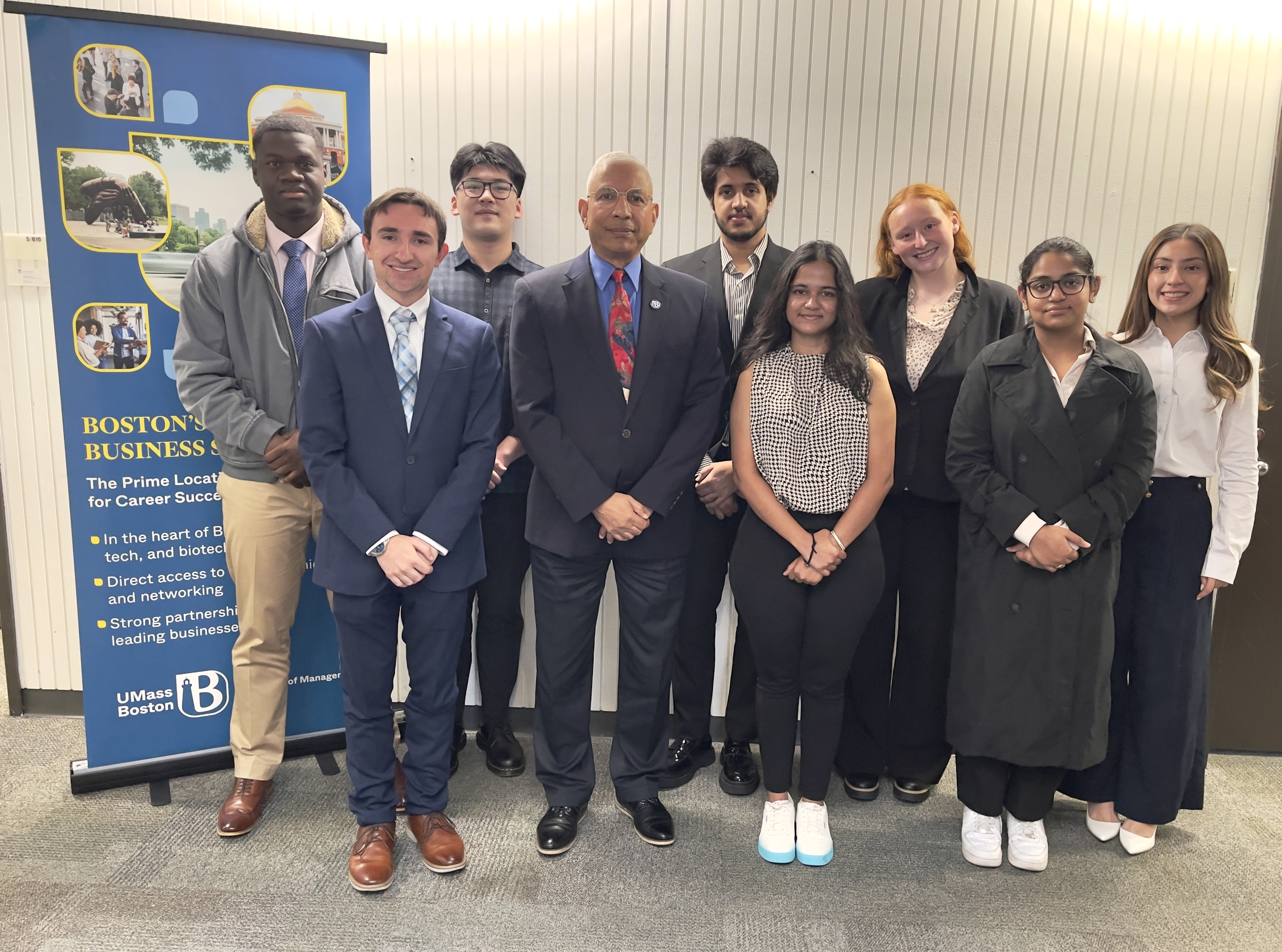Think College at UMass Boston’s Institute for Community Inclusion (ICI) has been awarded a $10 million grant from the U.S. Department of Education
As a federally funded center based in the School for Global Inclusion and Social Development’s ICI, Think College’s research, evaluation, and national leadership efforts are administered through UMass Boston. Think College has served as the NCC since the TPSID initiative first began, leading the national effort to improve higher education access for students with intellectual disability. With this new funding, Think College will continue its work supporting hundreds of programs across the country to strengthen the quality and reach of inclusive higher education.
“We are thrilled to continue this work,” said Meg Grigal, senior research fellow at the ICI and principal investigator for Think College, “to build the field's capacity to ensure high-quality, inclusive postsecondary education and really ensure students have great outcomes. The bottom line is, if students with intellectual disability go to college, we want them to have an authentic, meaningful, and inclusive college experience that leads to competitive employment and good outcomes.”
Since its founding, Think College has served as a hub for research, policy, and technical assistance in inclusive higher education. As the NCC, the organization supports all federally funded model demonstration programs known as TPSIDs by providing guidance and shared learning. “We collect data on every student who is enrolled in a program that has received federal funds, and we have been doing that for the past 15 years,” Grigal said. “We now have 15 years of longitudinal data on college students with intellectual disability demonstrating their capacity to take classes, earn credits, have jobs, and have good employment and independent living outcomes after college.”
That data has shaped the growth of the field nationwide. Over the past 15 years, 131 colleges and universities in 34 states have received federal TPSID funding, a total investment of about $190 million.
“It’s incredibly successful,” Grigal said, “so often you hear about a grant getting funded and wonder, whatever happened to it? Did anything come of it? This program has literally changed lives. It has changed colleges and universities. It has changed K–12 education. It has changed the field of special education and higher education in a way I’ve never seen any other grant program do.”
Through its work as the NCC, Think College has also established national accreditation standards for inclusive postsecondary education, bringing accountability and quality assurance to a growing number of programs.
“We’ve developed the accreditation standards and an accrediting process for postsecondary education programs for students with intellectual disability,” Grigal said. “We’ve supported the launch of an independent accreditor for these programs, and now there have been multiple programs that have sought and achieved accreditation, so that’s a huge shift in accountability and quality assurance.”
The Think College team also provides technical assistance and resources to parents, educators, and policymakers, helping states and institutions develop opportunities for students.
“We manage a directory of all the higher education institutions enrolling people with intellectual disability,” Grigal said. “Right now, that’s about 361 colleges and universities. There's no other data source that captures this information, so Think College’s public program directory is really the only source of that information available in the country.”
This has led to measurable policy change: 24 states have passed legislation supporting inclusive higher education, with many more developing similar initiatives.
Beyond data and policy, Grigal said, the work is deeply rooted in belief changing what families, educators, and society expect of students with intellectual disabilities.
“I think it always comes back to expectations and believing it’s possible,” she said. “Whether you’re a parent or a student, or an educator, or a researcher, once you truly believe it’s possible, it’s going to change all of your subsequent actions.”
That philosophy guides the center’s national outreach efforts. Think College recently launched the “Think Higher. Think College.”, public awareness campaign featuring a new video for K–12 educators and transition professionals. The campaign aims to raise awareness that college is a real and attainable goal for all students.
“So many parents have said, ‘No one ever told me my kid could go to college,’ and so many teachers said, ‘I didn’t know there was a program in my state,’” Grigal said. “We want people to walk away and say, ‘This is real! Let me see this thing!’”
While Think College’s work spans the nation and beyond, its home at UMass Boston connects to the university's mission of inclusion, research, and equity.
“College has the potential to really impact the lives of people with intellectual disability in ways other education experiences don’t,” Grigal said.
Learn more about Think College’s work with the National Coordinating Center and explore resources, data, and videos at Think College: NCC.
Latest University News
- Second Beacon Wellness Walk Draws Impressive CrowdUMass Boston successfully kicked off another year of the Beacon Wellness Initiative — focused on empowering health, promoting well-being, and building community — with the Second Annual Beacon Wellness Walk held on Wednesday, October 1.
- UMass Boston’s Institute for Community Inclusion Awarded $481,675 to Expand “Future Quest” Career Exploration InitiativesLori Cooney, M.Ed., program director of inclusive education and curriculum design at the Institute for Community Inclusion (ICI) at UMass Boston, has been awarded a second-year contract of $481,675 from the Plan Your Way OK initiative at the Oklahoma State Department of Education, funded by the Rehabilitation Services Administration (RSA). This year’s award builds on a prior $249,650 contract and is part of a four-year partnership totaling $1.39 million.
- Biology Team to Survey Reptiles and Amphibians in National Parks with $190K NPS Cooperative AgreementProfessors of Biology Rob Stevenson and Doug Woodhams, from the College of Science and Mathematics, have received a two-year award for $190,000 from the Department of the Interior’s National Park Service to develop a comprehensive survey of reptiles and amphibians in participating parks.
- In Fruit Fly Eyes, UMass Boston Researcher Sees Potential Medical DiscoveriesJens Rister, an associate professor in UMass Boston’s biology department, has just been awarded more than $1,700,000 in funding from the National Eye Institute of the NIH to research a protein that guides the development of color vision in fruit flies. By learning more about the underlying mechanisms, Rister hopes to learn about human diseases such as Oculoauricular Syndrome, a genetic condition that affects eyes and ears.
- Quantum Experts Discuss Impact of Investment on Students, Science and BusinessesFollowing the announcement that UMass Boston will be receiving a $3.8M grant to develop and commercialize quantum hardware, expert panelists discussed the positive impact that investment in quantum research can have.
- College of Management Welcomes a Global Cohort of Dean’s Student AmbassadorsThe College of Management at the UMass Boston is proud to announce its newest cohort of Dean’s Student Ambassadors–an extraordinary group of undergraduate leaders who will represent the College throughout the 2025-2026 academic year.



